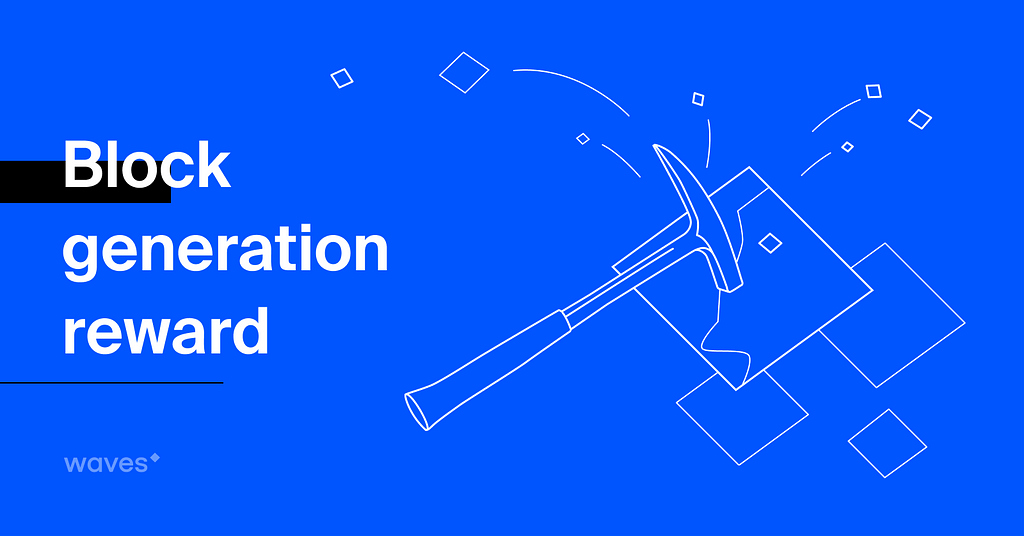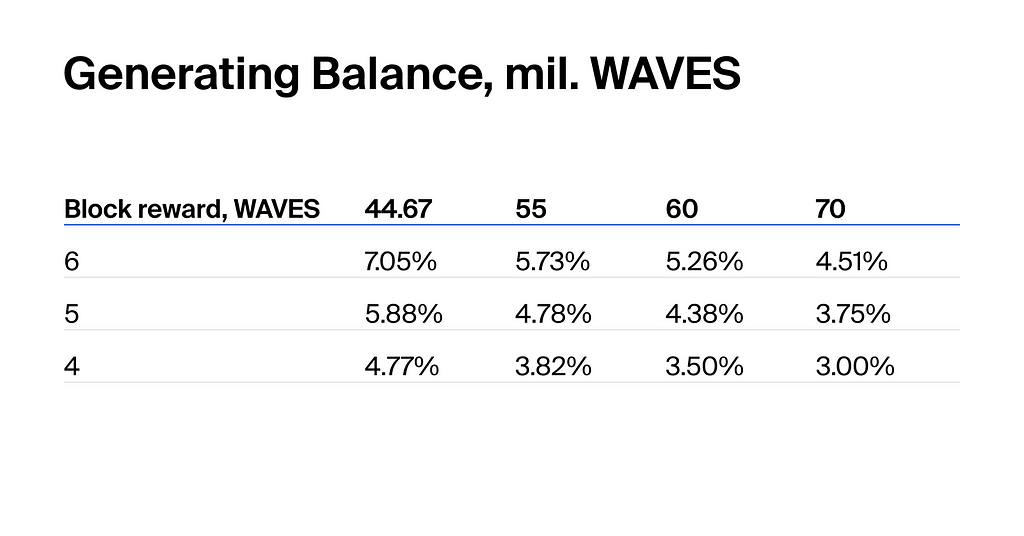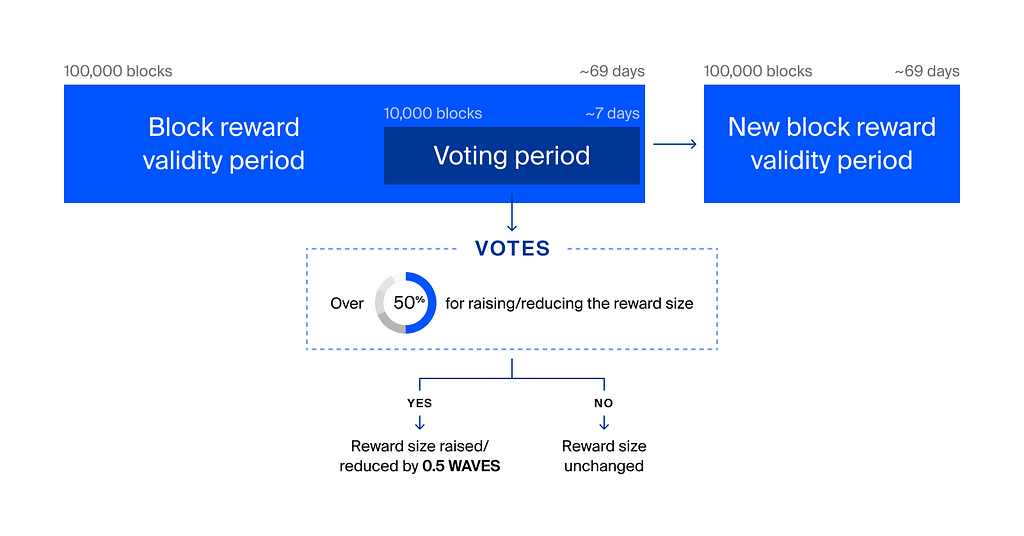
In another step towards sustainability and financial stability, the community will now make major decisions affecting block rewards and coin supply.
It is time to improve Waves’ economic model, making it more balanced, democratic and self-sustaining. Speaking more broadly, it is time to make the crypto space work as a real economy, rather than effectively existing on donations.
Currently, our monetary system is essentially deflationary, since the number of issued tokens is limited. The use of a Proof of Stake consensus algorithm leads to some WAVES being withheld from circulation in full nodes. Similarly, some tokens are withheld because of leasing, and with the arrival of sidechains yet more tokens will be locked up and removed from circulation.
We recognize that there are a range of views around the role and effect of the money supply within an economy, and the desirability of changes to that supply. At present, Waves’ money supply is fixed and unalterable, centrally decided at the launch of the network. The community can develop countless applications and use cases (and we encourage them to do so!), building a thriving economy on the Waves platform. And yet, they have no control over the monetary supply that underpins that economy.
Ultimately, this may prove unsustainable. In any case, we believe it is better to decentralize monetary policy and hand responsibility for this task to the community. To these ends, we propose a functionality to enable a new approach to token issuance, in order to support transparent, collective decision-making on the best way forwards.
Block generation rewards
A major step towards the long-term sustainability of the Waves platform is the introduction of a mining reward for each generated block — the size of which is to be decided by the community. The reward is expected to boost demand for leasing WAVES, attracting new participants to the ecosystem. The reward is also likely to attract new block generators (i.e. new nodes) to the Waves ecosystem, expanding it and boosting demand for WAVES.
Unlike the Proof of Work consensus algorithm, Waves’ Proof of Stake consensus doesn’t require expensive computing equipment for block generation: an instance with Dual-core processor, 4 GB RAM and 50 GB (SSD) storage is sufficient. We therefore expect most of the funds received as block generation rewards to be used for leasing. As block generators don’t need to continually upgrade costly equipment, they will instead raise their stake to maintain their chances of block generation. Unlike PoW miners who are after powerful equipment, WAVES block generators are after a larger stake.
To make WAVES mining attractive, we suggest a reward of 6 WAVES for every generated block, which corresponds to target annual revenues of around ~5.3% (in WAVES) taking into account the possible increase of the generating balance.
Block generators’ annual revenue will be calculated by the formula
r (%) = (b * n * d) / g
r is revenue (%)
b is the number of blocks generated in 24 hours
n is the block generation reward
d is the number of days in a year
g is generating balance (http://dev.pywaves.org/generators/)

Community-driven monetary policy
As we aim to make our platform more democratic and community-driven, the size of block rewards will be determined by the Waves community through voting — thus introducing a form of decentralized monetary governance. In effect, this process will be the decentralized equivalent of a central bank setting interest rates. However, in our case, the process is absolutely transparent and driven by the community, as opposed to a regulator or monetary policy committee making key interest rate decisions.

WAVES block generators will be able to vote to change the size of the block generation reward. The established block reward will be valid for 100,000 blocks, which roughly corresponds to 69 days. The final 10,000 blocks (roughly a week) of each 100,000 block period will be a voting period for the following 100,000 block stretch.
During the voting period, block generators will vote for higher, lower or unchanged rewards by writing their decision to all created blocks. The reward can be changed in increments of 0.5 WAVES at a time. For the reward size to be raised or reduced, over 50% of all block generators will have to vote for it. Otherwise, the reward size will remain unchanged for the next period.
Read Waves News channel
Follow Waves Twitter
Watch Waves Youtube
Subscribe to Waves Subreddit
Waves introduces governance for decentralized monetary policy was originally published in Waves Platform on Medium, where people are continuing the conversation by highlighting and responding to this story.
